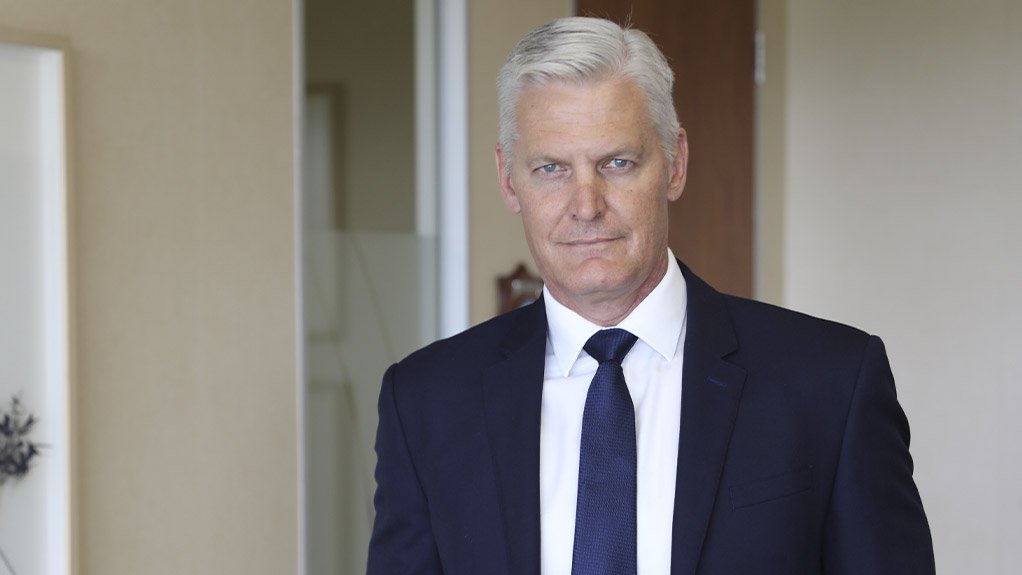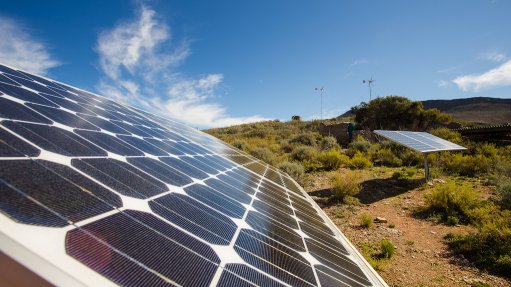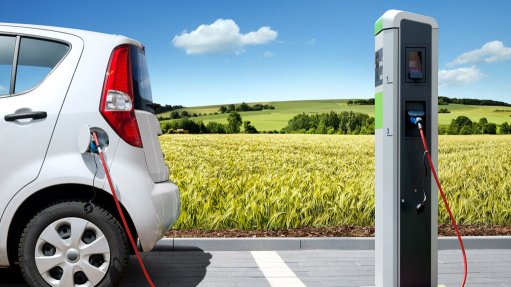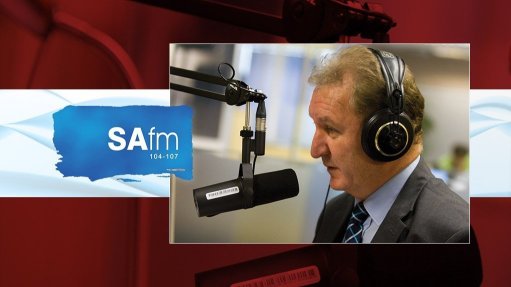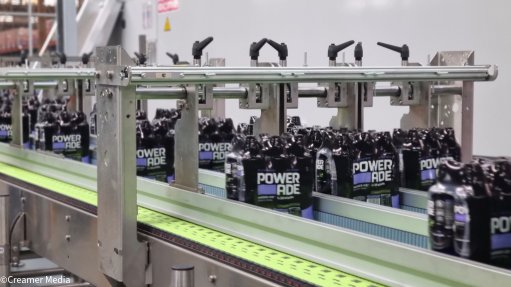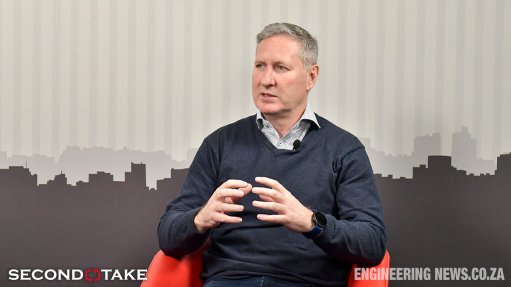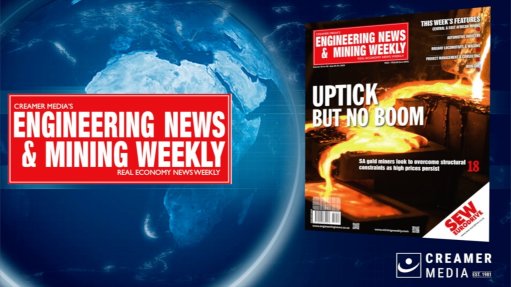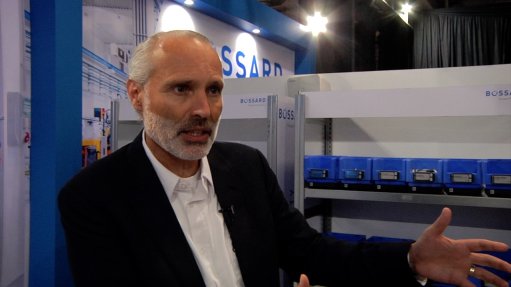De Ruyter continues to draw link between corruption and loadshedding in damp squib Parliamentary appearance
Former Eskom CEO André de Ruyter continued to draw a direct link between corruption at the State-owned utility and ongoing loadshedding during his much-anticipated, but ultimately unsatisfactory, virtual appearance before the Standing Committee on Public Accounts (Scopa) on Wednesday.
To the obvious frustration of committee members, De Ruyter declined to provide any new details regarding the startling allegations he first made during a television interview in February.
During that interview he revealed that a senior politician was directly implicated in criminal activities at Eskom but that no action had been taken despite the matter having been raised with senior government and law enforcement officials.
He confirmed in a written submission to the committee that information arising from a privately-funded and commissioned intelligence report had been shared with Minister Pravin Gordhan, National Security Adviser Dr Sydney Mufamadi, as well as with General Fannie Masemola and former Eskom chairperson Professor Malegapuru Makgoba. The submission also highlights that, following the meetings, official investigations had seemingly been initiated and that there had been 43 arrests.
De Ruyter, therefore, refused to divulge further information, nor name individuals involved, arguing that doing so could undermine ongoing investigations, compromise the safety of certain individuals and potentially place himself in legal jeopardy.
Only limited questioning was made about the credibility of the intelligence report, despite a News24 exposé published ahead of the hearings, which raised serious questions about the quality of the report, as well as the integrity of the lead investigator.
De Ruyter remained forthright in his position that there was a direct connection between corruption within Eskom, which he said was conservatively costing the utility R1-billion monthly, and power cuts that were being implemented daily.
Asked specifically about a comment made by Electricity Minister Dr Kgosientsho Ramokgopa, suggesting that corruption was not the reason for the collapse of the Unit 1 flue duct at Kusile on October 23, which left three units inoperable and Eskom without 2 100 MW of generation capacity, De Ruyter aligned himself with a statement made by the National Union of Mineworkers (NUM) on the issue.
In a March statement, the NUM Highveld Region said it “categorically and emphatically” disagreed with the Minister’s version that corruption in Eskom did not play a role in loadshedding.
De Ruyter said procurement irregularities at Kusile involving Hitachi and Chancellor House had resulted in serious design problems with the boilers that had a direct bearing on the flue collapse last year.
“If the boilers [at Kusile] had been appropriately designed, the issue of a higher exhaust-gas velocity, which caused the carry-over of ash and gypsum into the duct that eventually collapsed leading to the outage of three units, would not have taken place,” he said, noting that the sequence of events that led to the boiler contract was controversial and had led to Hitachi concluding a $19-million legal settlement in the US with the Securities Exchange Commission.
De Ruyter also highlighted the role that the purchase of coal with a higher ash content had played in the collapse and noted that Kusile had been premised on coal arising from the New Largo mine, which had not been built and was, thus, currently relying on coal transported in by truck.
“I believe the corruption in the coal supply chain played a contributing role to the collapse of the duct at Kusile.”
Asked whether criminal cartels linked to the road transportation of coal in Mpumalanga had played any role in the delay of the construction of New Largo, he responded thus: “With any question of this nature, the departing principle should be to ask who benefits and clearly the people who benefitted from a delay in the opening up of New Largo . . . are those transporting coal by road.”
In his written submission, De Ruyter again made reference to four alleged coal cartels operating in Mpumalanga, naming them as: the Presidential Cartel, focusing mainly on Matla; the Mesh-Kings Cartel, with Duvha as its main area of control; the Legendaries Cartel, which is based in Standerton and focuses on Tutuka; and the Chief Cartel, operating out of Newcastle and focusing on Majuba.
The private intelligence report linked two Cabinet Ministers to some of these cartels, but the News24 exposé cautions that the report is “stuffed with wild and uncorroborated allegations”.
Scopa, which hosted De Ruyter in the absence of a full Parliamentary Investigation, after the establishment of such an inquiry was voted down by the governing African National Congress, will now hold further meetings into the allegations, including with Public Enterprises Minister Pravin Gordhan, the Eskom board, the Advisor to President Cyril Ramaphosa, Dr Sydney Mufamadi, State Security Agency, Directorate for Priority Crimes Investigation, the National Prosecuting Authority, Special Investigating Unit, and the South African Police Service.
Comments
Projects
Latest Multimedia
Latest News
Showroom
From batteries for boats and jet skis, to batteries for cars and quad bikes, SABAT Batteries has positioned itself as the lifestyle battery of...
VISIT SHOWROOMM and J Mining are leading suppliers of physical support systems as used by the underground mining industry. Our selection of products are not...
VISIT SHOWROOMPress Office
Announcements
What's On
Subscribe to improve your user experience...
Option 1 (equivalent of R125 a month):
Receive a weekly copy of Creamer Media's Engineering News & Mining Weekly magazine
(print copy for those in South Africa and e-magazine for those outside of South Africa)
Receive daily email newsletters
Access to full search results
Access archive of magazine back copies
Access to Projects in Progress
Access to ONE Research Report of your choice in PDF format
Option 2 (equivalent of R375 a month):
All benefits from Option 1
PLUS
Access to Creamer Media's Research Channel Africa for ALL Research Reports, in PDF format, on various industrial and mining sectors
including Electricity; Water; Energy Transition; Hydrogen; Roads, Rail and Ports; Coal; Gold; Platinum; Battery Metals; etc.
Already a subscriber?
Forgotten your password?
Receive weekly copy of Creamer Media's Engineering News & Mining Weekly magazine (print copy for those in South Africa and e-magazine for those outside of South Africa)
➕
Recieve daily email newsletters
➕
Access to full search results
➕
Access archive of magazine back copies
➕
Access to Projects in Progress
➕
Access to ONE Research Report of your choice in PDF format
RESEARCH CHANNEL AFRICA
R4500 (equivalent of R375 a month)
SUBSCRIBEAll benefits from Option 1
➕
Access to Creamer Media's Research Channel Africa for ALL Research Reports on various industrial and mining sectors, in PDF format, including on:
Electricity
➕
Water
➕
Energy Transition
➕
Hydrogen
➕
Roads, Rail and Ports
➕
Coal
➕
Gold
➕
Platinum
➕
Battery Metals
➕
etc.
Receive all benefits from Option 1 or Option 2 delivered to numerous people at your company
➕
Multiple User names and Passwords for simultaneous log-ins
➕
Intranet integration access to all in your organisation



